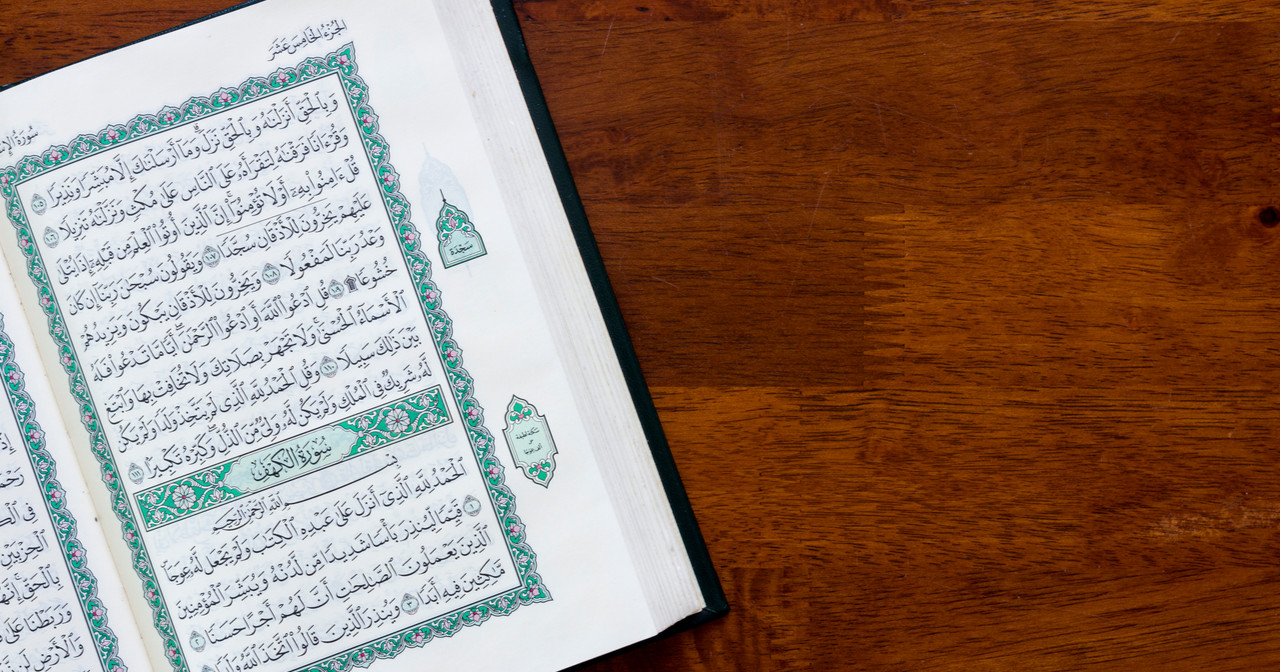Someone once told me that the benefit that two different people receive from the Qur’ān is similar to the touch of the sea: if two people jumped into the same sea, the water molecules touching one person would be different to the water molecules touching the other person, even if they were swimming right next to each other.
Similarly, the Qur’ān resonates in unique ways with different people. Indeed, we may read a passage many times over the years, only to then draw a unique pearl of wisdom from the verse – a new observation that we can relate to in our lives.
As we have passed the halfway point of Ramaḍān, many of you who are reading one juz’ a day in order to complete the recitation of the Qur’ān will have read Sūrat al-Kahf. As I was reading this chapter, I reflected on the story of Dhul-Qarnayn in a way that I had not done before.
Dhul-Qarnayn is described in the Qur’ān as a powerful and prosperous leader who was also wise and just. It is related that as he travelled through the land and was passing through two hills, he came across a situation where two tribes plundered and regularly raided a local peaceful nation. The people of this nation requested Dhul-Qarnayn to build a barrier between them and the two corrupt tribes [Al-Qur’ān 18:94] while they bore the cost. Dhul-Qarnayn’s response is thought-provoking:
He said, “That in which my Lord has established me is better [than what you offer], but assist me with strength (i.e. manpower); I will make between you and them a dam.”[1]
Dhul-Qarnayn was the most powerful man on the planet. He had an army at his disposal to gather the material resources and construct the iron rampart. It is interesting to note that, despite this, he motivated the people themselves to engage in the process of changing their own circumstances.
This historical event demonstrates that everyone has a role to play, irrespective of their position and condition, in order that they can become beneficiaries of the Mercy of Allāh.[2]
It is therefore important that people play their part in their own solution while maintaining patience and placing their trust in Allāh. If anything, this historical event, in a sense, conforms to the following verse of the Qur’ān:
For him (i.e. each one) are successive [angels] before and behind him who protect him by the decree of Allāh. Indeed, Allāh will not change the condition of a people until they change what is in themselves.[3]
Also Read:
A lesson on assimilation from Surah al-Kahf
8 Steps to Increase in Tadabbur
What is your intention whilst reading the Qur’ān?
How to Make Tadabbur in 10 Steps
Change, in challenging conditions, will not come about until changes are made in ourselves. Divine protection envelops this reciprocal relationship between our conditions and our own selves.
Today, Muslims are the suspect community. Due to the atmosphere created by Britain’s counter-extremism strategy, Prevent, we are increasingly finding ourselves unable to raise our children as Muslims without surveillance-like scrutiny from teachers, doctors, and dentists.
To change these conditions, each one of us must first and foremost become attuned to the Controller of all affairs. Beyond this, we must recognise the role we can play in alleviating our own suffering.
Whether it is knowledge, leadership, organisational or oratory skill, wealth, or strength, Allāh has blessed each one of us in unique ways which, when applied correctly, can come together to form a process through which we too can become beneficiaries of the Mercy of Allāh.
We too can build a barrier to protect the īmān of our children.
Source: www.islam21c.com
Notes:
[1] Al-Qur’ān 18:95
[2] Al-Qur’ān 18:98
[3] Al-Qur’ān 13:11









